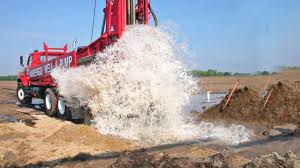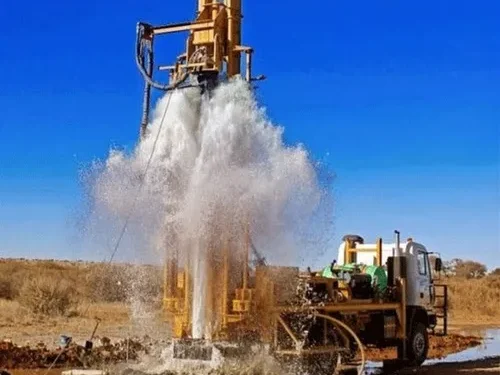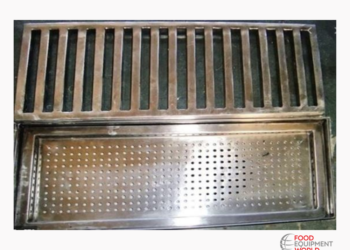In today’s infrastructure-dependent world, regular borewell maintenance is not just a best practice but a crucial investment in ensuring sustainable economic benefits and operational efficiency. Borewells serve as pivotal sources of water for various industries, agriculture, and domestic purposes, making their uninterrupted functionality paramount.
Optimizing Borewell Cleaning
Regular maintenance of your borewell is crucial to maintain its longevity and efficiency. Investing in periodic cleaning, disinfection, and necessary repairs is key to preventing expensive problems like pump damage, water contamination, and reduced water yield. By ensuring these maintenance tasks are performed regularly, you not only save costs in the long term but also guarantee a dependable water supply that meets your needs reliably.

Ensuring Longevity and Efficiency
Importance of Scheduled Maintenance
Scheduled maintenance of borewells significantly enhances their longevity and operational efficiency. Regular inspections, cleaning, and servicing prevent potential breakdowns and ensure optimal water yield. This proactive approach minimizes downtime, thereby maximizing productivity in sectors reliant on continuous water supply.
Cost-Effectiveness of Preventive Measures
Investing in preventive maintenance proves to be highly cost-effective in the long run. By addressing minor issues promptly, such as sediment buildup, pump inefficiencies, or casing corrosion, businesses and homeowners alike can avoid costly repairs or premature replacements. This approach not only saves money but also safeguards against unforeseen operational disruptions.
Environmental Sustainability
Efficient Water Management
Maintaining borewells in optimal condition promotes efficient water management practices. Regular upkeep reduces water wastage due to leaks or inefficient pumping mechanisms. This conservation contributes to sustainable water usage, aligning with environmental regulations and corporate sustainability goals.
Mitigating Environmental Impact
Properly maintained borewells help mitigate adverse environmental impacts. Leakage from poorly maintained systems can lead to soil erosion, contamination of groundwater, and disruption of local ecosystems. By adhering to maintenance schedules and utilizing eco-friendly practices, businesses uphold their commitment to environmental stewardship.

Boosting Operational Reliability
Ensuring Consistent Supply
Industries reliant on borewells for operations benefit immensely from consistent water supply. Routine maintenance ensures that production processes remain uninterrupted, minimizing downtime and optimizing output levels. This reliability is crucial for meeting contractual obligations and maintaining competitiveness in the market.
Enhancing Agricultural Productivity
Agricultural sectors particularly benefit from well-maintained borewells. Consistent water availability supports crop irrigation, livestock hydration, and farm mechanization, all of which are essential for maximizing agricultural productivity. Farmers can plan cultivation cycles effectively, leveraging dependable water sources secured through regular maintenance practices.
Regulatory Compliance and Risk Management
Meeting Legal Standards
Regular maintenance of borewells ensures compliance with local regulatory standards. Governments mandate periodic inspections to prevent groundwater contamination and ensure public health safety. Adhering to these regulations not only avoids legal penalties but also fosters community trust and goodwill.
Managing Operational Risks
Proactive maintenance reduces the risk of sudden equipment failures or operational disruptions. Businesses that prioritize risk management through regular inspections and maintenance protocols safeguard their assets and maintain operational continuity. This preparedness is essential for adapting to unforeseen challenges and maintaining business resilience.
Preventing Pump Damage
Pump damage is a common issue associated with water wells. Sediment accumulation, bacterial growth, and mineral deposits can all contribute to pump damage, resulting in reduced efficiency and eventual failure. Regular maintenance by a qualified borewell contractor in Chennai can effectively prevent these issues, prolonging the life of your pump and ensuring efficient operation. This proactive approach not only saves you from costly repairs or replacements but also maintains consistent water supply reliability.
Enhancing Water Yield
As time passes, borewells often accumulate silt, sand, and other debris that obstruct the water flow, thereby reducing the water yield. Regular cleaning of borewells effectively removes these obstructions, enhancing the water yield and alleviating strain on the pump. This proactive maintenance not only decreases electricity costs but also guarantees a steady and reliable water supply to meet your requirements.
Preventing Water Contamination
Contaminated water from borewells presents significant health hazards to you and your family. Without proper maintenance, bacterial growth, chemical contamination, and other pollutants can infiltrate the water supply. Regular maintenance practices, including thorough disinfection and cleaning, play a crucial role in preventing water contamination. This proactive approach not only safeguards your health but also reduces the need for expensive medical treatments and water purification systems.
Extending Borewell Lifespan
Regular maintenance plays a crucial role in extending the lifespan of your borewell. Consistent inspections, cleaning, and repairs help prevent potential issues that may necessitate borewell replacement—a costly endeavor. By prioritizing regular maintenance, you can ensure that your borewell remains operational for many years, resulting in long-term savings.
Conclusion
The economic benefits of regular borewell maintenance are undeniable across various sectors. From ensuring operational reliability and enhancing productivity to promoting environmental sustainability and regulatory compliance, proactive upkeep of borewells yields substantial long-term advantages. By investing in preventive maintenance, businesses and homeowners alike secure reliable water sources while mitigating financial risks associated with system failures.







